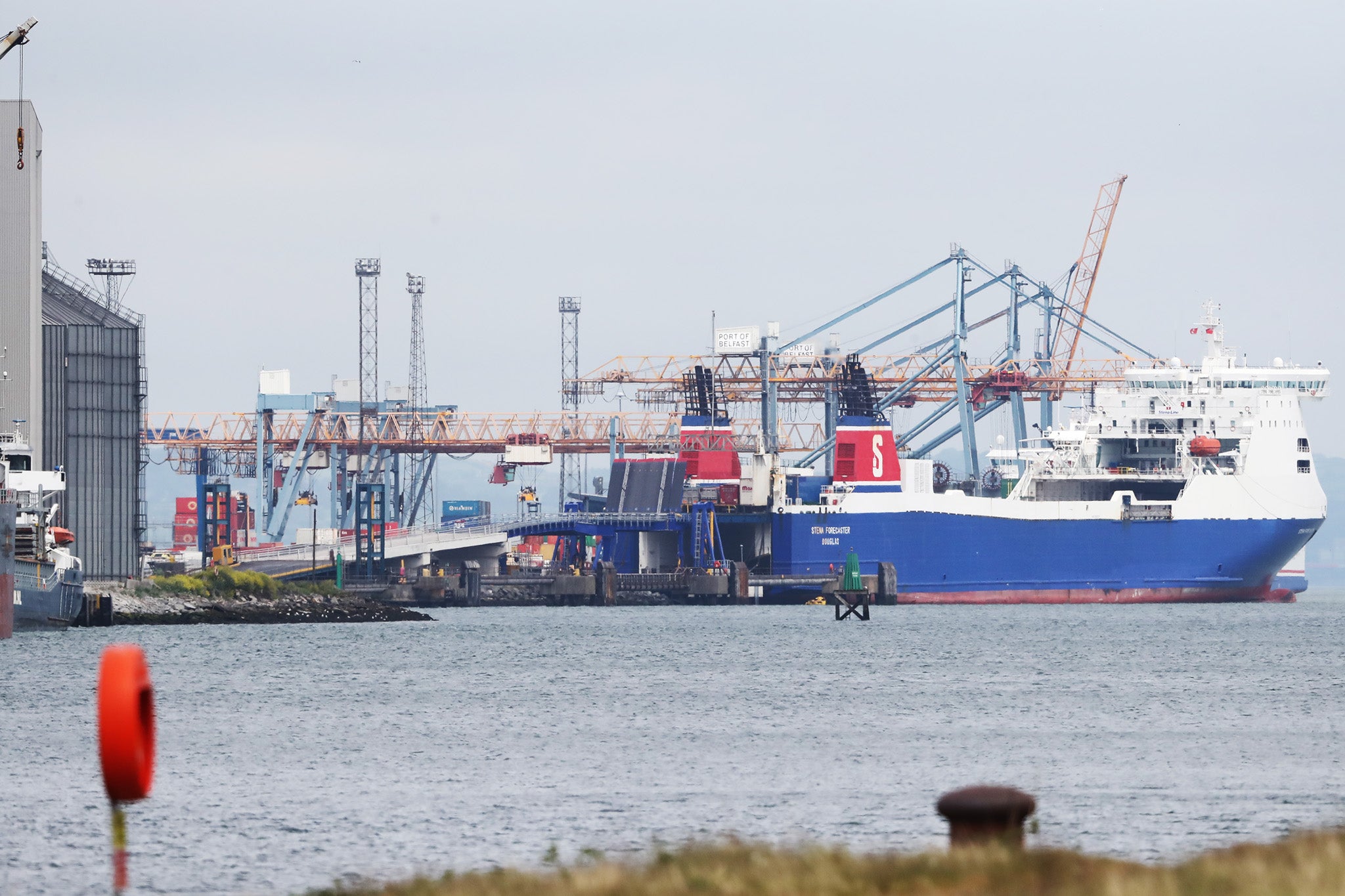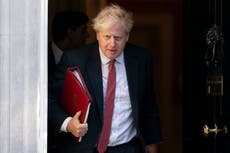What changes to Brexit agreement mean for Ireland
The age-old Irish question is now a question as much for Brussels as for Britain, writes Sean O’Grady


Were it not for nearly 1,000 years of, shall we say, complicated and often unhappy Anglo-Irish relations, Brexit would be a bit simpler than it is turning out to be. That’s not to say that it would be easy, or a disaster or economically mixed, or any other unknowable event; it is simply to point out that the latest “bump in the road”, the British proposal to “override” part of the UK-EU withdrawal agreement relating to Northern Ireland, is unusually problematic because of history. Specifically it arises as a direct result of the partition of Ireland in 1922, and the centuries of war and the Troubles that came before and after. The fear is that the kind of customs and border posts commonly seen internationally (and even in Europe) would incite a return to Republican and Loyalist violence. That might, in turn, mean remilitarising the Northern Ireland-Ireland border; the political future of the province, and the possibility of a united Ireland, comes into play.
Contrast the Northern Irish border issue with the position in the English, Belgian and French ports. There, the chances are that the end of the transition period on 1 January will see the sprouting of a vast infrastructure of border controls and customs checks to administer the tariffs and regulations on both sides. It is all very inconvenient, but no one wants to blow them up. That is the difference.
The question does arise as to whether, after the Good Friday Agreement of 1998 and two decades of peace, anyone in Ireland wants to go back to the world of sectarian murder, army observation posts, barricaded police stations, helicopter controls and bombing campaigns in England. The answer to that is unknown, of course, but there is at least a risk that the continuing small groups of terrorists would go back to their dirty work, and, rather more dangerously, that the Provisional IRA and the various Ulster loyalist paramilitaries would regard the Good Friday Agreement as finished, and with it their commitment to exclusively peaceful means. The consequences of that would be gruesome. Putting a tag and a tax on a lorry-load of beef would be the least of our problems.
Because Ireland is a member state of the EU, Brussels has, to an extent, inherited the Irish question, and the Irish border with Northern Ireland is now the EU’s border with the UK. The clever notion of moving the border back to the Irish Sea instead is enshrined in the Northern Ireland protocol of the UK-EU withdrawal agreement, now passed into British law and an international treaty.
Yet that imaginative solution is what is now being challenged by the British government. If, as it seems, the economic border between Northern Ireland and Great Britain is no longer going to be acceptable to the same British government that signed up to it a few months ago, then logic – not politics – leaves only the possibility that the EU will have to impose economic controls on the island of Ireland, assuming that the UK government would refuse to do so. Yet that would be contrary to the Good Friday Agreement. Despite what the British government says now, this consequence is not unforeseen, and was argued about interminably during Theresa May’s premiership and when Boris Johnson agreed to it last October in the “oven-ready deal”. It is nothing new. It is a Groundhog Day politics.
So the historical Irish question gives rise to a series of other equally intractable questions.
These include: where the provisions of the UK-EU withdrawal agreement (an international treaty) conflict with those of the Good Friday Agreement (formally the Belfast Agreement and also an international treaty), which takes precedence in either jurisdiction?
And: is there any logical, political or technological escape from the current Irish “trilemma”? Namely the following three incompatible elements: first, to avoid a hard border on the island of Ireland; second, for the UK (including Northern Ireland) to be outside the EU customs union and outside the EU single market (which means hard borders); third, no special arrangements in Northern Ireland that detract from its status as an integral and equal part of the UK internal market, with frictionless trade and sovereign or devolved control over issues such as state aid and other “level playing field” issues.
This UK internal market is now being framed by legislation (and means no internal barriers and bureaucracy), and the British government is insisting on pan-UK sovereignty on state aid and similar policies; at present, under the withdrawal agreement, Northern Ireland will have to obey some EU rules (depending on where the UK-EU trade talks end up).
There is no framework or software or ambiguous political formula that can square this particular triangle, a kind of diplomatic shamrock, except it can only have two leaves.
At any given moment, in other words, only two of those three are compatible, and it was the third that was jettisoned to “get Brexit done”, to the dismay of the Democratic Unionist Party (DUP) in Northern Ireland and their sympathisers elsewhere. As a no-deal Brexit becomes more likely, so the checks and bureaucracy required at the economic border between Northern Ireland and Great Britain will expand and become more onerous. There will be some sort of EU presence permanently overseeing the implementation of the withdrawal agreement at Northern Irish ports; EU rules on state aid might apply to Northern Ireland, and thus part of the “sovereign” UK. If the Great Britain-Northern Ireland border is simply moved to the Ireland-Northern Ireland border then the Good Friday Agreement is violated.
There are no answers. The odd thing is that the people of Northern Ireland and their fragile devolved government seem to play such a minor role, despite the principle of local consent being enshrined in both the Good Friday Agreement and in the UK-EU withdrawal agreement. The fate of Northern Ireland is mostly being discussed over the heads of its population and politicians. Northern Ireland, in fact, voted against Brexit in 2016 (by 55.8 per cent to 44.2 per cent), with most of the nationalist/republican communities and parts of the unionist community (especially in business) preferring to Remain. Of the two governing parties, the DUP supported Brexit, and Sinn Fein opposed it. Some in the DUP have been more vocal in their opposition to the Northern Ireland protocol than their leader and first minister, Arlene Foster. There is not much consensus about Brexit in any case, and it has the potential, depending on how events pan out, to trigger a fresh border poll on a united Ireland. Under the Good Friday Agreement, the border poll would take place in (the Republic of) Ireland as well as Northern Ireland – “free and concurrently given”. It would have to be granted by the British secretary of state for Northern Ireland “if at any time it appears likely to him that a majority of those voting would express a wish that Northern Ireland should cease to be part of the United Kingdom and form part of a united Ireland”.
It would be a poignant coincidence if this arrived around the centenary year of partition, and thus with added emotional force on both sides.
The final irony is that a border on the island of Ireland is probably impractical anyway if it means a return to violence. As the British army discovered over three decades, it is effectively unpoliceable, whatever some treaty might say. The Northern Ireland protocol is like the creation of the border between the six counties of the north and the rest of Ireland itself a hundred years ago: the least worst of the many awful alternatives available. We may hope that no one has to relearn that lesson the hard way.


Join our commenting forum
Join thought-provoking conversations, follow other Independent readers and see their replies
Comments